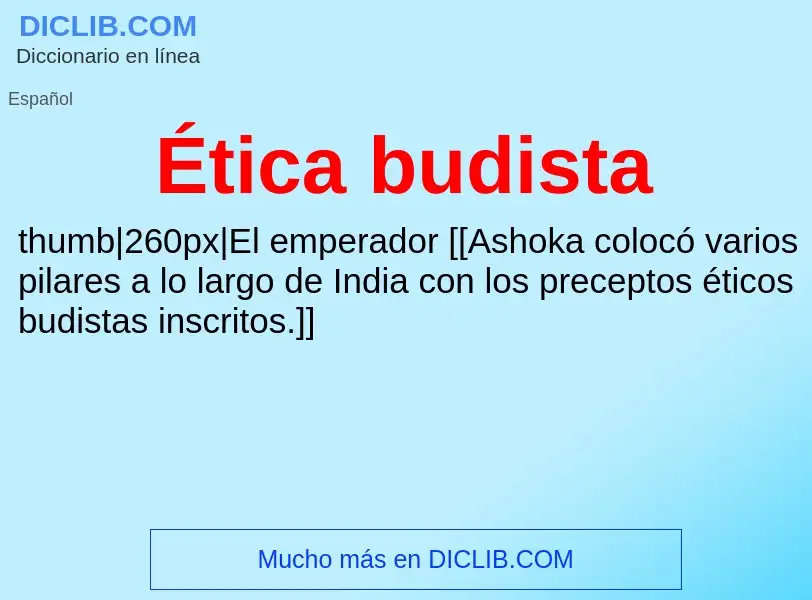Enter a word or phrase in any language 👆
Language:
Translation and analysis of words by ChatGPT artificial intelligence
On this page you can get a detailed analysis of a word or phrase, produced by the best artificial intelligence technology to date:
- how the word is used
- frequency of use
- it is used more often in oral or written speech
- word translation options
- usage examples (several phrases with translation)
- etymology
What (who) is Ética laica - definition
Ética budista
thumb|260px|El emperador [[Ashoka colocó varios pilares a lo largo de India con los preceptos éticos budistas inscritos.]]
Ética nicomáquea
TRATADO DE ARISTÓTELES
Ética Nicomaquea; Ethica Nicomachea; Ética (Aristóteles); Etica a Nicomaco; Etica (Aristoteles); Etica Nicomaquea; Etica nicomaquea; Etica (Aristóteles); Ética (Aristoteles); Etica a Nicómaco; Ética a Nicomaco; Ética nicomaquea; Etica nicomáquea; Ética a Nicómaco; Ética Nicomáquea
Ética nicomáquea o Ética a Nicómaco (griego Ἠθικὰ Νικομάχεια,sob transliterado Ethika Nikomacheia; gen.: Ἠθικῶν Νικομαχείων, Ethikōn Nikomacheiōn; latín Ethica Nicomachea) es el nombre dado a la obra más conocida de Aristóteles sobre ética, escrita en el siglo IV a.
Ética empírica
Se llama moral o ética empírica dentro de la filosofía kantiana a una ética basada o formulada a partir de la experiencia. Se opone a la ética formal.
Wikipedia
Ética laica
La ética laica o ética secular, es una concepción de la filosofía moral en la que la ética se basa únicamente en facultades humanas como la lógica, la razón, la empatía o la intuición, y no deriva de una supuesta revelación o guía sobrenatural (que es la fuente de la ética religiosa). La ética laica puede ser vista como una amplia variedad de sistemas morales y éticos basados en gran medida en el humanismo, el laicismo y librepensamiento.
Examples of use of Ética laica
1. "El carácter neutral de los centros no se rompe por una ética laica", añadió después José María Martín Patino, presidente de la Fundación Encuentro.




.jpg?width=200)
